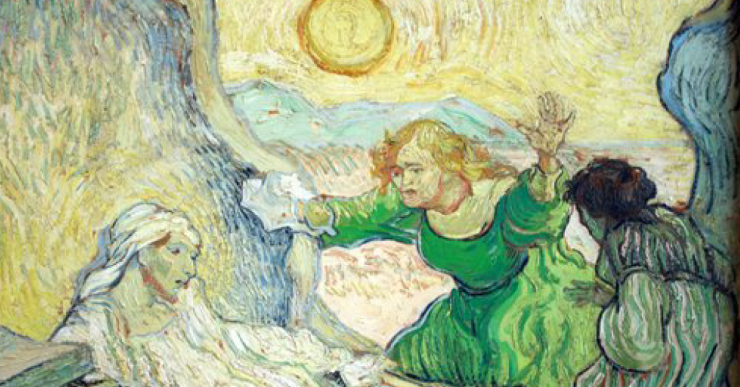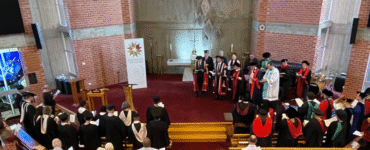Hope, assurance of restoration, and belief in the God who can bring an end to all suffering, does not prevent Jesus weeping.
“The steadfast love of the Lord never ceases, his mercies never come to an end; as they are new every morning; great is your faithfulness” (Lam 3:22-23). These two verses are surely the most well-known in the book of Lamentations. And yet they are buried at the very centre of five chapters of laments over the destruction of Jerusalem. Unsurprisingly, “He has made my teeth grind on gravel, and made me cower in ashes” (Lam 3:16) has not inspired hymns or liturgy quite to the same extent. And yet this verse is far more typical of the book of Lamentations as a whole. The lamenters knew the wonderful truth of God’s mercy and faithfulness, and yet their suffering remained acute, dominating their cries.
The story of Mary, Martha and the death of Lazarus in John 11 is a strange one. Lazarus becomes ill and sisters Mary and Martha send word to Jesus. Jesus delays his journey to them by two days, and in that time Lazarus dies. When Jesus arrives, Mary and Martha accost Jesus with the same question: “Lord, if you had been here, my brother would not have died” (Jn 11:21; 32).
To Martha, Jesus gives hope, “Your brother will rise again”; followed by a theology lesson: “I am the resurrection and the life” (Jn 11:23, 25). Jesus knows what he is going to do, he will raise Lazarus from the dead. Martha can have confidence because of this glorious truth. “His mercies never come to an end”.
But something very interesting happens when Jesus sees Mary weeping. He knows he will bring Lazarus from the dead, he is assured of his power to bring Lazarus back from the dead; and yet, Jesus weeps. He sees Mary weeping and he weeps with her.
Hope, assurance of restoration, and belief in the God who can bring an end to all suffering, does not prevent Jesus weeping.
Maintaining hope for the future during COVID is hard work. If anything, this second lockdown in Melbourne has proved that even the few simple things that we might look forward to (going out for a weekend brunch, spending time with a close friend) can be snatched away in an instant.
In Jesus’ response to Martha, hope is essential in a time of hopelessness, hope calls us to cast our eyes heavenward to God’s faithfulness and mercy despite the suffering around us. But in the book of Lamentations, and Jesus’ response to Mary, so too hopelessness is essential to hope. There is no beauty in resurrection without also weeping over death. When we find ourselves struggling in hopelessness, when hope feels impossible, this is where the seeds of hope begin.
Rachelle Gilmour is Bromby Senior Lecturer in Old Testament at Trinity College. She completed her studies in Old Testament/Hebrew Bible at the University of Sydney (PhD), before undertaking postdoctoral research at the Hebrew University of Jerusalem and the University of Edinburgh. She has also held positions as Senior Lecturer in Biblical Studies at BBI: The Australian Institute of Theological Education, and research fellow at the Centre for Public and Contextual Theology, Charles Sturt University.







Add comment